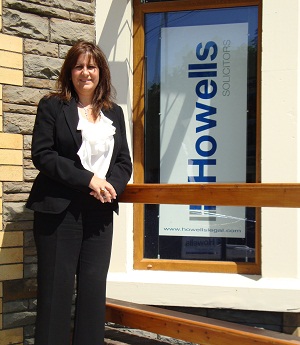
There are a whole host of processes included in a residential conveyancing service and invariably, it will take time. However, by choosing to work with an experienced firm of solicitors who are dedicated to delivering the highest level of customer service, it is possible to move the process along swiftly.
Receipt of draft contract – seen by many as the starting point of the conveyancing process, the contract should set out the terms of the sale process and include details of the property as well as items which are to be included in the sale.
Preliminary enquiry – whilst waiting for the draft contract, a solicitor will send a list of enquiries to the seller’s solicitor to reveal fundamental information about the property and the sale.
Property information form – although not included in every conveyancing case, you may be sent this form by your solicitor which includes a summary of the items included in the contract, such as boundaries, fixtures and fittings etc. More...

What is an Enduring Power of Attorney (“EPA”)?
An EPA is an instrument that could be made before 1st October 2007. It enables a person (“the Donor”) to appoint an Attorney or Attorneys to act on his or her behalf and make decisions in relation to his/her property and financial affairs.
What is a Lasting Power of Attorney (“LPA”)?
LPA’s were introduced by the Mental Capacity Act 2005. They replaced EPA’s and have been in force since 1st October 2007. EPA’s made before that date are still valid.
There are two types of LPA, a property and financial affairs LPA (“LPA PA”) and a health and welfare LPA (“LPA HW”). It is possible for someone to make just one or both types.
The LPA PA enables the attorney to make decisions in relation to the Donor’s property and financial affairs, like its predecessor the EPA. The LPA HW, on the other hand, enables the Attorney to make decisions about day to day welfare issues, and about medical treatment.
What is Registration?
If the Donor loses mental capacity the Attorney is under a duty to register the EPA with the Office of the Public Guardian (“the OPG”).
As a part of the process, certain people should be notified of the situation, by the Attorney and the OPG and they will be entitled to lodge any objection they have to the application.
The idea is that those who are notified will bring to the attention of the OPG any issues which suggest that the Attorney is not, or is no longer, an appropriate person to make decisions on behalf of the Donor.
The notification from the OPG may be the first thing that a friend or relative hears about the EPA or LPA. This can, of course, lead to some concern.
Why Object?
Those who receive notification are the last line of defence to protect the Donor from an inappropriate Attorney. If you have received a notification and are concerned about the EPA or LPA you should seek immediate legal advice. You only have a limited time to register your objection.
It is not appropriate to object just because you do not like the Attorney. Rather, an objection should only be advanced if your suspicions/concerns fall into one of the following:
1. You think that the EPA or LPA is not valid - i.e. the Donor did not have mental capacity at the time the document was signed, or, you think the document is a forgery.
2. You think that the EPA or LPA was revoked by the Donor before he/she lost capacity.
3. You suspect that fraud or undue pressure was used to induce the Donor to make the EPA or LPA.
4. You think that there are compelling other reasons why the Attorney should not make decisions for the Donor. I.e. the Attorney has been declared bankrupt or convicted of a criminal offence.
What if the EPA/LPA is Already Registered?
It is possible to make an application for the cancellation of a registered EPA or LPA in certain circumstances, particularly if you think:
1. Fraud or undue pressure was used to induce the Donor to create the EPA or LPA.
2. The Attorney is unsuitable i.e. due to bankruptcy, criminal convictions, dishonesty, a conflict of interest with the Donor.
What Else Can Be Done?
The OPG has a Safeguarding Unit and if you have some suspicion, but not enough to merit making a formal application to revoke an LPA or EPA, you can make a report to the Safeguarding team and they will then likely investigate the Attorney and try and establish whether he or she is appropriate for the role, and acting in the best interests of the Donor.
If you become aware that a friend or relative is being financially or in any other way abused by their Attorney, you should contact us and we will help you navigate the complex legal process.

Call Howells Solicitors today on 0808 178 2773.
by Tristan Lewis

Every year, hard-working people who have strived all their lives to pay for their family home are seeing their hard work count for nothing, as their homes are sold to meet the cost of care in later life.
Research shows that half of women and a third of men will require some form of long-term care. It is this, in some cases the exorbitant cost of residential care, which means thousands of people are unable to pass their family home down to their children.
What happens to homeowners entering a care home?
If you own your home the local authority will not count it as capital until you have been receiving residential care or living in a nursing home for 12 weeks. After this point, your home will still not be classed as capital if any of the following still reside there: More...
The family of former Cardiff-resident Frank Green, who owned a famous toy shop in Canton for over 20 years, have been able to claim back care costs from the NHS after a recent claim through the team at Howells Solicitors.
Mr Green, who served in World War II and ran the toy shop SF Green on 295 Cowbridge Road afterwards until 1969, became increasingly ill after retirement and moved into care homes in Llandough, UHW and Whitchurch hospitals. There, the authorities made no assessment for his ongoing care and informed his family that any care fees must be funded by them. The family used Mr Green’s savings and sold his home to pay for his care in the final years of his life between 2003 and 2007.
Informed by the Coughlan and Grogan cases, in which families of seriously ill people were able to claim compensation from the health authorities if they were wrongly charged with care fees, our solicitor Alison Huggins worked with Mr Green’s family to reclaim the care fees they paid. More...

Sarah Millard, an experienced family law solicitor, has joined the Howells Solicitors team in our Talbot Green office.
Mrs Millard has practised family law in the Rhondda for over 15 years. She sits on the Children’s Panel Accreditation Scheme, the Family Law Panel, is a member of the Family Law Advanced Accreditation Scheme and Treasurer of the Pontypridd and Rhondda District Law Society.
Mrs Millard joins the firm from a local practice where she had worked for 12 years. Her appointment will provide Howells Solicitors with the expertise to represent clients involved in children and domestic violence cases as well as other family law matters in the Rhondda and Mid Glamorgan. More...
